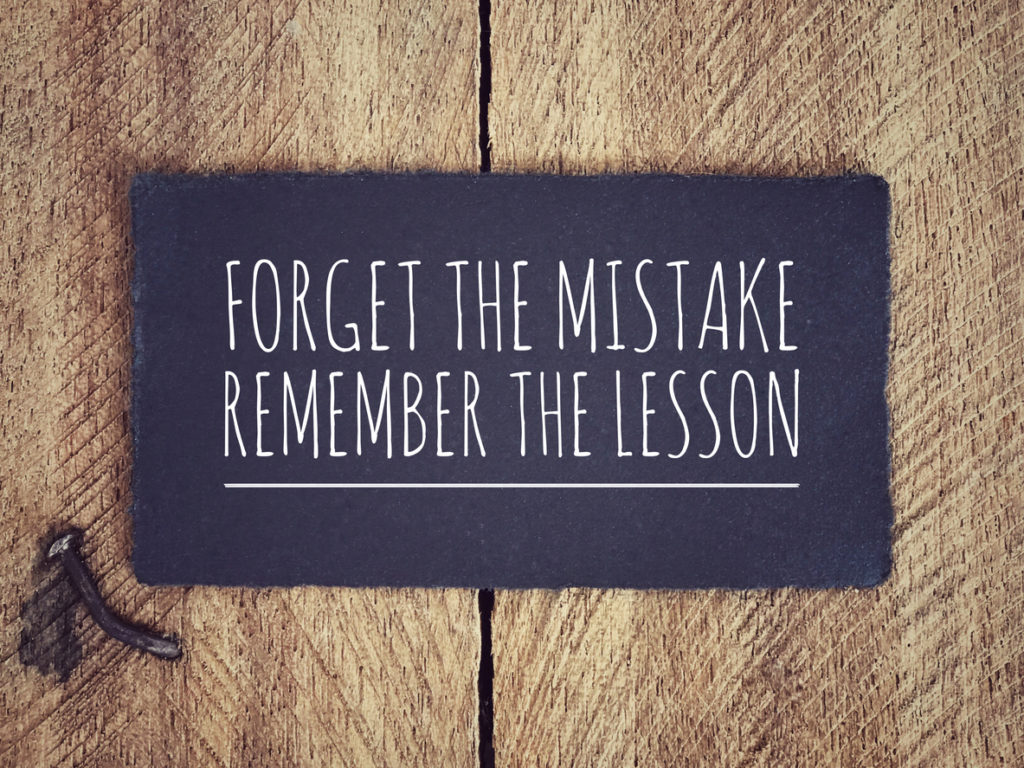 No matter how much you plan, train, prepare, anticipate, and cover your bases, mistakes happen. Some great inventions have been purely unintentional—like potato chips, popsicles, sticky notes, and Velcro. Imagine if the inventor looked at the outcome as a failure and shoved it aside. We need to pay attention to the undeniable value of mistakes.
No matter how much you plan, train, prepare, anticipate, and cover your bases, mistakes happen. Some great inventions have been purely unintentional—like potato chips, popsicles, sticky notes, and Velcro. Imagine if the inventor looked at the outcome as a failure and shoved it aside. We need to pay attention to the undeniable value of mistakes.
Thomas Edison didn’t invent the electric light but he was persistent in his quest to find a more affordable alternative for the filament. He tried more than 6,000 materials. When asked about these “failures”, Edison replied, “I have not failed. I’ve just found 10,000 ways that don’t work.”
Ultimately, his perseverance paid off. Would you have continued after so many unsuccessful attempts?
A child doesn’t walk on his first try. A painter or writer doesn’t create a masterpiece without first fine-tuning their craft, which means learning from unsuccessful results.
Mistakes are your friend. Embrace them. Learn from them. Ask yourself why your approach didn’t deliver the results you expected or wanted. An error, misstep, or mistake is a sign that you are taking a risk, not sitting still.
Legendary coach John Wooden echoed that sentiment. “If you’re not making mistakes, then you’re not doing anything.”
In fact, in this rapidly changing and unpredictable world, if you’re not making a fair amount of mistakes, you’re playing it too safe. Those who differentiate themselves don’t achieve that acclaim by doing what everyone else does. They take a risk at going at it in a different way. “The way we’ve always done it” means you’re living in the past, and if 2020 has taught us anything, we can’t accept the status quo.
Best-selling author John C. Maxwell says we should discover the value in learning from mistakes. “A man must be big enough to admit his mistakes, smart enough to profit from them, and strong enough to correct them.”
And there’s the key to leveraging mistakes for growth. Acknowledge that you made it and don’t waste time and energy pointing fingers at others. That action is purely a shaming exercise, and what does that produce?
Maxwell also offered this advice: “People who blame others for their failures never overcome them. They simply move from problem to problem. To reach your potential, you must continually improve yourself, and you can’t do that if you don’t take responsibility for your actions and learn from your mistakes.”
Instead, approach the mistake with, “What did we learn? What can we do better? How can we apply this lesson to improve?”
Where do you want to grow? Is the fear of making a mistake holding you back? Let it go and discover what you can achieve when you’ve off-loaded the weight of fear.


